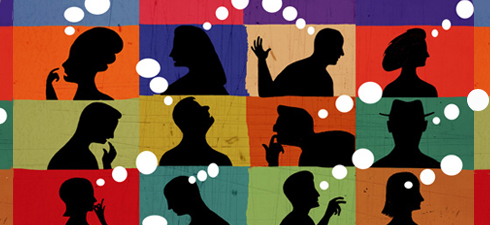One hundred and fifty years ago, that is to say in the time of my great-great-great-grandmother, none of the countries in Europe had embraced democracy. Universal suffrage was only introduced towards the end of the 19th century, and was not extended to include women until much later — particularly in Sweden which was slow off the mark.
In considering the far reaching consequences of this reform for all of the countries involved, it is important to bear in mind that it only came about as a result of a long period of sustained pressure for change.
This pressure was exerted outside of the sphere of power, in the free press, in novels, in theatres and in trade unions. In short, this democratic breakthrough was preceded by a media revolution which was not very different to the one that we are experiencing today.
Participation in debate was extended, and people who had hitherto been unable make themselves heard suddenly had a say and a right to vote. The doors to vast "virtual salon" had been thrown open to all comers.
In the 1840s, new ideas on the future of society took shape in the new public sphere, in newspapers, and the letters of the period. The emergence of a new forum for discussion offered by the free press in the nineteenth century was a heady adventure which has many parallels modern adventure of the internet.
No such thing as a European opinion magazine
Democracy begins with public debate, and in the wake of the Arab Spring it is clear that the Internet has opened channels of communication with the potential to bring people onto the streets and play an essential role in the instigation of change.
But how has this development affected the European Union? We are often told that a common currency like the euro can only exist if it is backed by a strong central power that is perceived as trustworthy.
Central governance is progressively being reinforced with the introduction of new rules, but the democracy that Europe proudly claims as its core value has remained distressingly discreet. Where are the major debates that are supposed to bring Europeans together?
Hour by hour, summit by summit, the European Union is omnipresent in the media which dutifully reports on its failures, an atmosphere of mistrust and the possibility of imminent catastrophe.
At a time when European policy appears to be mainly characterised by aggression between countries, the vast majority of European citizens depend on national television, and national news media for their understanding of events, and continue to be wholly immersed in national perspectives.
Even in a well-stocked newsagents with racks of foreign press titles, there is no such thing as a European opinion magazine.
Nationalism of times past
What you do find are historical reviews in German and English, devoted to the past glories of Germany and the UK: special editions of Die Zeit with articles on the "influence of Frederick the Great", and BBC History to tell you "All you need to know about the British Empire".
But does anyone write about what Europe has in common? About the history that transcends national borders? Rail companies were national, but the thrill of the first rail journeys was something that was shared, while the reduced time required for travel brought countries closer together.
When national museums sprang up in capitals across Europe, they did so at the same moment, and they were built with very similar plans. And the same is true of the struggle for the right to vote which extended well beyond national borders. But notwithstanding all of these examples, history is largely categorised under ethnic and national labels.
In libraries, you will find one shelf on Swedish art history and another on art in Denmark, as though they were radically different. And similar classifications are used in the music, economics and politics sections, even though the reality is that ideas, money and melodies have never paid much attention to borders.
Europe is now faced with the fresh challenge of fictional communities concocted from the nationalism of times past and their spokesmen who invite the reawakened masses "to kick out" those who "have no right to be here".
In the meantime, we are left to wonder if we will see the emergence of a wider European community with a European public sphere, in which Europeans can engage in a public dialogue that goes beyond European summits. Who will open the door to the new European ”virtual salon”? Who will launch a European public debate that is not simply confined to speculation about the winner of the next Eurovision.
Was this article useful? If so we are delighted!
It is freely available because we believe that the right to free and independent information is essential for democracy. But this right is not guaranteed forever, and independence comes at a cost. We need your support in order to continue publishing independent, multilingual news for all Europeans.
Discover our subscription offers and their exclusive benefits and become a member of our community now!












